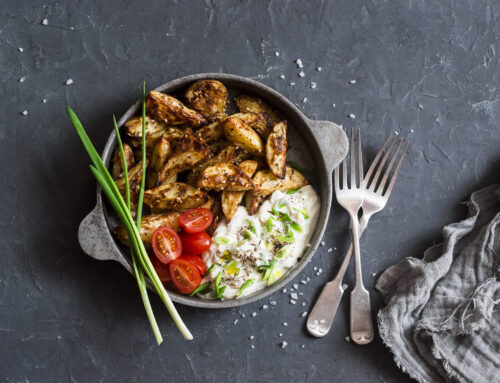The celebration of life’s milestones, such as weddings and baptisms, plays a central role in the cultural fabric of Greece and Cyprus. These events are characterized by an abundance of food, music, and dancing, reflecting the vibrant culinary traditions and social customs of these Mediterranean nations. In this guide, we explore the traditional wedding and baptismal feasts in Greece and Cyprus, highlighting the unique dishes and customs that shape these joyous occasions.
Wedding Feasts in Greece and Cyprus
Greece
In Greece, wedding feasts are an opportunity for families and friends to come together in celebration of the newlyweds. Traditional Greek wedding dishes often include:
- Roasted lamb or goat, symbolizing abundance and prosperity.
- Rice pilaf, a common accompaniment to the main course.
- Spanakopita and tiropita, savory pastries made with spinach and cheese, respectively.
- Greek salad, made with tomatoes, cucumbers, onions, olives, and feta cheese.
- Loukoumades, deep-fried dough balls soaked in honey and sprinkled with cinnamon and walnuts.
Cyprus
Cypriot wedding feasts also feature a variety of dishes that reflect the island’s rich culinary heritage:
- Souvla, marinated and grilled meat (usually pork or lamb) cooked on a spit.
- Koupepia, grape leaves stuffed with minced meat and rice.
- Tzatziki, a yogurt-based dip with cucumber and garlic.
- Halloumi, a traditional Cypriot cheese that is often grilled.
- Baklava, a sweet pastry made from layers of phyllo dough filled with chopped nuts and sweetened with honey.
Baptismal Feasts in Greece and Cyprus
Greece
At Greek baptismal feasts, the focus is on dishes that symbolize joy, purity, and celebration. Some traditional foods that might be served include:
- Roasted or grilled lamb, which is considered a festive dish and is often associated with important celebrations.
- Spanakopita and tiropita, popular choices for baptismal feasts as they are delicious and easy to share among guests.
- Rice pilaf, often prepared with chicken broth and sometimes mixed with vegetables.
- Greek salad, a staple at many Greek celebrations.
- Diples, thin, deep-fried pastries drizzled with honey and sprinkled with cinnamon and walnuts.
- Baklava, another popular dessert choice for baptismal feasts.
Cyprus
In Cyprus, baptismal feasts also bring families and communities together to celebrate the newly baptized child. Traditional Cypriot dishes served at these gatherings may include:
- Souvla, the marinated and grilled meat dish that is also popular at wedding feasts.
- Flaounes, cheese-filled pastries that are traditionally consumed during the Easter season but may also feature at baptismal feasts.
- Kolokotes, pumpkin turnovers filled with a mixture of pumpkin, bulgur, raisins, and spices.
- Kleftiko, slow-cooked lamb or goat, often prepared in a clay oven.
- Loukoumades, the deep-fried dough balls soaked in honey, similar to the Greek version.
Traditional wedding and baptismal feasts in Greece and Cyprus showcase the culinary traditions, regional flavors, and cultural customs that make these nations so unique and cherished. By participating in these celebrations, families and communities come together to reinforce their shared values, beliefs, and social bonds, ensuring that these cherished traditions are passed down to future generations. As we explore the rich tapestry of wedding and baptismal feasts in Greece and Cyprus, we gain a deeper appreciation for the ways in which food serves as a symbol of unity, cultural heritage, and continuity.
In both Greece and Cyprus, these feasts are not only about the food but also about the sense of community and togetherness they create. Music, singing, and dancing often accompany these feasts, providing an opportunity for guests to connect with one another and celebrate the special occasion.
Furthermore, the preparation and sharing of these traditional dishes often involve the participation of multiple generations, reinforcing family bonds and the transmission of culinary knowledge and cultural customs from one generation to the next. This intergenerational exchange plays a crucial role in preserving the distinct culinary identities of Greece and Cyprus.
Ultimately, the traditional wedding and baptismal feasts of Greece and Cyprus highlight the importance of food as a means of celebration, a reflection of cultural heritage, and a way to strengthen family and community bonds. By embracing these customs and rituals, we contribute to the richness and diversity of the Greek and Cypriot culinary traditions, ensuring that the flavors and experiences of these vibrant cultures continue to thrive for generations to come.

